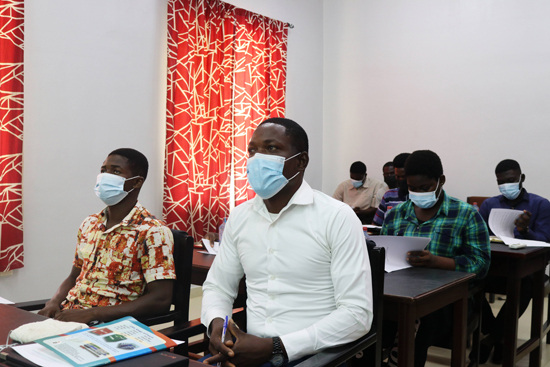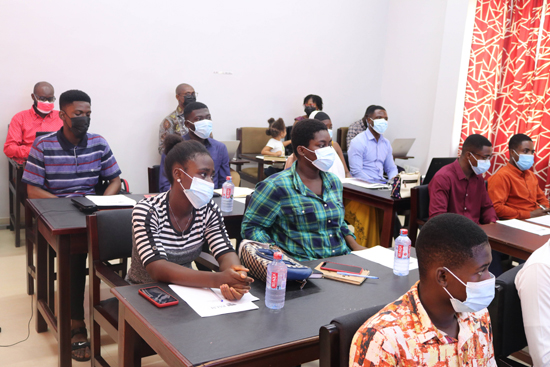Web Exclusive
Cultivating Cultural Curiosity in Social Work Who would have thought teaching children to swim as a BSW student in Kingston, Jamaica, was the start of a fervent passion to explore diverse cultures? Growing up in a suburban, white, middle-class community, diversity was not commonplace. Twenty-seven months as a U.S. Peace Corps Volunteer in a remote village in Malawi, Southern Africa, taught me about humanity and its ability to be overwhelmingly kind as a community of rural, impoverished farmers embraced me, looked out for me, and cared for me like I was their own. I learned that we aren’t as different as we appear, but those differences need to be recognized, examined, and appreciated both in thought and in action. This experience solidified the significance of building relationships—even in silence—despite language barriers and misunderstandings. A continued fascination with culture led me to practice social work in the United Kingdom and to serve as a U.S. Peace Corps Response Volunteer in Ghana, West Africa. Twenty-six years after building a connection with Jamaicans, along with having additional national and international transformative experiences, I have gained a great deal. For example, I have realized the importance of acknowledging and respecting difference along with the arduous process of working to understand another culture through extreme humility and the complex intricacies and incomprehension of my own culture. I have had the privilege to ignite a cultural curiosity in social work students to help promote and drive better practice. What a journey it has been. A Lifelong Effort Students reside with Ghanaian host families and take a trotro (public transportation) to and from their field placement. It is a phenomenal experience to support and encourage students through the process of navigating their unique personal, professional, and educational journeys. The unpredictability of working in a diverse culture on another continent is something that, even after 10 years, I can’t and won’t ever fully comprehend. The most prevalent challenge that students have once they arrive is adjusting to a much slower pace. In Ghana, relationships are valued far more than our task-focused orientation that often entails the burden of “to do” vs. “to be.” I urge students to take advantage of and appreciate this unique period in their lives to spend quality time engaging, connecting, and learning from colleagues and clients without the excessive pressure of cost-driven interactions. Instead, focus on the importance of relationships and develop a mutual respect for diversity and the exchange of information and knowledge. I have also found students are quick to implement Western-based interventions. Social work can look different based on geographical location. I urge students to promote sustainability by becoming an ally with the work that is already being done. It is important to acknowledge that we are not the experts. This doesn’t mean a student’s knowledge isn’t valued. However, without a deep understanding of the culture and awareness of culturally relevant and effective evidence-based and informed practices, interventions could cause more harm than good. The campaign No White Saviors suggests to "... start listening before speaking, learning before acting, and partnering instead of leading.” What students gain from such an experience is immeasurable, limitless, and distinct to everyone. International experiences enhance an understanding of oneself, cultural differences, and social challenges. Social work students open their minds to new ways of thinking, become aware of their own values and beliefs as well as society’s, appreciate difference, are mindful of social injustices, and cultivate their own professional identity. Students are obliged to find a way to traverse and cope while adapting to an absence of Western comforts. Plus, there is cultural confusion which often contradicts and opposes the social work values we uphold and advocate for. This necessitates embarking on a path toward self-reflection and personal reckoning. For the past 11 years, I have taught BSW and MSW courses at the university level. I integrate examples and illustrations of my international and national experiences by drawing parallels and differences. This enlightens students often beyond their myopic understanding. In addition, two colleagues and I received three years’ of funding through the Katherine A. Kendall Institute for International Social Work Education and the Council on Social Work Education to expose U.S.-based social work students to internationalization. Our project engages University of Alabama and University of Ghana social work students through WhatsApp and Zoom platforms to provide an opportunity to communicate and engage in cross-cultural learning. This takes place within an online policy course with other faculty at the University of Alabama. Because social workers are increasingly practicing with client systems that reflect multiple cultures, my hope is that some of these experiences will cultivate cultural curiosity, competence, and awareness that in turn leads to best practices being implemented anywhere they may find themselves.
Photo credit: Prince Gidi — Beth Okantey, MSW, has been practicing social work for 26 years both domestically and internationally. In 2013, she developed a BSW/MSW field practicum program in Ghana, West Africa, for social work students. She has been teaching social work courses at the undergraduate and graduate level for the past 11 years. She and her husband began a liberal arts college focused on critical thinking that promotes ethical leadership to Ghanaians who wouldn't otherwise be able to access higher education. |



